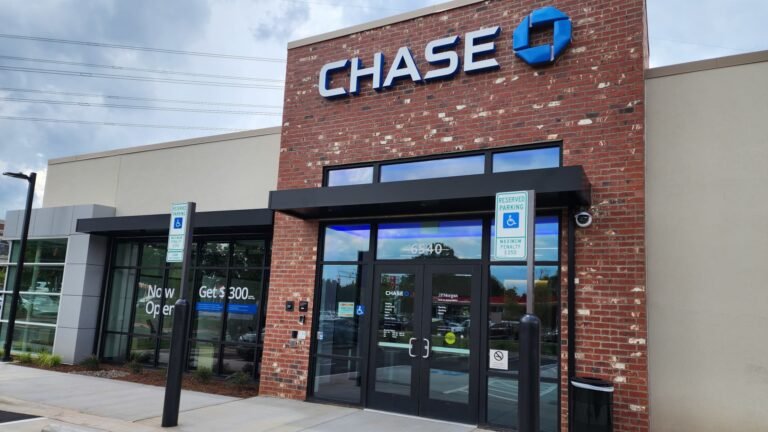Debt Consolidation Loan: Debt can feel overwhelming, especially when high-interest credit cards, medical bills, and personal loans pile up. A debt consolidation loan simplifies management: one monthly payment, often at a lower interest rate. If you’re in Texas and seeking a trusted lender and structured approach, this guide breaks it all down—from top consolidation companies to a solid debt‑free plan.
✅ Top Debt Consolidation Loan Lenders in Texas (2025)
Based on lowest APRs, flexibility, funding speed, and consumer feedback:
1. PenFed Credit Union
- APR: ~8.99%–17.99%
- Loan amount: Up to ~$50,000
- Funding: 1–2 business days
- No origination fees, fast approval, and strong credit union reputation
- Best for borrowers with good credit who can join easily (low deposit required)
2. Alliant Credit Union
- APR: From ~10.49%
- Loan amount: Up to ~$100,000
- Same‑day funding possible
- Excellent option for larger debt and quick payouts
3. Wells Fargo
- APR: ~7.49%–24.99%
- Loan amount: $3,000–$100,000
- Repayment terms up to 84 months
- Offers rate discounts and no origination fees
- Best for borrowers seeking flexible repayment and no hidden costs
4. SoFi
- APR: ~5.74%–20.28% (depending on credit)
- Loan amount: $5,000–$100,000
- Terms: 12–60 months
- No origination or prepayment penalties, soft-credit prequalification, unemployment protection
- Ideal for strong-credit borrowers wanting transparent terms and borrower perks
5. Best Egg
- APR: ~8.99%–35.99%
- Loan: $2,000–$50,000
- Offers secured loans at lower rate, direct pay to creditors
- Good for people with mid-credit scores who want streamlined payoff
6. Navy Federal Credit Union (NFCU)
- APR: ~8.99%–18.00%
- Loan: $250–$50,000
- Flexible approvals, same-day funding for eligible members.
- Available for military members, veterans and family
7. Achieve (by Freedom Financial Network)
- Not a lender but offers personalized consolidation solutions and loans.
- Works with Texas borrowers for tailored guidance
🧭 Choosing the Right Plan: Loan or Alternative?
Debt Consolidation Loan
A personal installment loan that pays off existing debts like credit cards, medical bills, and other unsecured balances. This approach:
- Simplifies to one payment
- Often lowers interest rates
- Offers fixed terms (2–5 years typical).
Debt Management Program (DMP) via Credit Counseling
For those who qualify, non-profit agencies (NFCC member agencies) negotiate lower interest and unified payments without a new loan. You repay over ~36–60 months to your counselor, who then pays creditors.
Home Equity Loan / HELOC (Secured Option)
Homeowners with equity (must retain 20% equity per Texas law) can borrow against their home, often at lower interest than personal loans. Risk: potential foreclosure if payments fail.
📋 Step-by-Step Consolidation Process in Texas
1. Evaluate Your Situation
- List all debts, balances, interest rates, and minimum payments
- Check your credit score (ideal > 620–680; >720 for best terms).
- Review income and create a budget to ensure sufficient cash flow for a payment each month.
2. Pre‑Qualify with Multiple Lenders
- Use soft-credit pre‑qualification where available (e.g. SoFi)
- Compare estimated APRs, monthly payments, fees, terms, and funding timelines.
3. Choose Your Option
- If credit is strong: consider SoFi, PenFed, Alliant, or Wells Fargo
- If you’re affiliated with military/veteran community: explore Navy Federal
- Need direct creditor payoff or credit‑improving counseling? Achieve or Best Egg may be suitable
4. Apply & Close the Loan
- Submit official application, provide ID & income proof
- Review loan agreement carefully—check for origination fees, prepayment penalties (many lenders don’t charge them).
- Decide on a repayment term—shorter term saves interest, longer term reduces monthly strain
5. Use Funds to Pay Off Debts Immediately
- Best-case: lender pays creditors directly
- If disbursed to your account, personally pay off each debt in full
6. Follow a Repayment Strategy
- Stick to monthly payments
- Resist re‑using paid‑off credit cards (keep them open only if manageable)
- Reassess monthly budget—redirect freed-up money to savings or faster payoff
7. Monitor Progress and Credit Improvement
- Consolidation may cause a temporary dip from closed accounts, but focused repayment typically improves credit over time.
- Use tools (apps, credit bureau reports) to track progress
⚠️ What to Avoid & Other Considerations
- Avoid debt settlement companies charging upfront fees or promising unrealistic payoff solutions—Texas law prohibits advance payment before service; use licensed agencies through OCCC.
- Beware of lenders advertised as “instant” consolidation—they may tack on origination fees or offer higher APRs.
- Consider nonprofit credit counseling (NFCC agencies) before committing—especially if needing help beyond just a loan.
📝 Sample Comparison Table
| Lender | APR Range | Loan Amount | Funding Speed | Best For |
|---|---|---|---|---|
| SoFi | 5.74%–20.28% | $5K–$100K | ~1–2 days | Strong-credit single borrowers |
| PenFed CU | 8.99%–17.99% | Up to $50K | 1–2 business days | Competitive rates, no fees |
| Alliant CU | From ~10.49% | $1K–$100K | Same day possible | Large loans, flexible terms |
| Wells Fargo | 7.49%–24.99% | $3K–$100K | 1–3 business days | No origination fees, solid credit |
| Best Egg | 8.99%–35.99% | $2K–$50K | ~24–72 hours | Mid-credit, direct payoff convenience |
| Navy Federal CU (Members) | 8.99%–18.00% | $250–$50K | Same‑day typical | Perfect for eligible military members |
📌 Final Advice for Texas Residents
- Compare multiple offers—APR, fees, term flexibility, and customer reviews all matter.
- Prioritize lenders licensed in Texas—especially those regulated by OCCC to ensure consumer protections.
- If credit is limited or debt overwhelming, explore no-loan relief options like nonprofit counseling or a Debt Management Plan.
- Make a commitment to stop accumulating new debt—consolidation helps, but sustainable financial habits matter most.
✔️ Final Thoughts
For Texans managing high-interest unsecured debt, a personal debt consolidation loan from a reputable lender like SoFi, PenFed, Alliant, or Wells Fargo may help lower your interest costs, simplify repayment, and accelerate debt freedom. Those affiliated with military service should also consider Navy Federal CU. And for individuals needing more structured guidance or lower-cost solutions, consider nonprofit credit counseling or a DMP.
Whichever route you choose, make sure the terms fit your financial situation, avoid upfront fee scams, and commit to a clear repayment strategy. Doing so will help you regain control—and move toward a debt-free future.
Frequently Asked Questions (FAQ)
1. What is a debt consolidation loan?
A debt consolidation loan is a personal loan used to pay off multiple debts (like credit cards, medical bills, or other personal loans), combining them into a single monthly payment—ideally with a lower interest rate.
2. Is debt consolidation a good idea in Texas?
Yes, if you qualify for a lower interest rate than your existing debts, it can simplify repayment, lower monthly payments, and help improve your credit score over time. However, it’s important to choose a reputable lender and avoid accumulating new debt afterward.
3. Do I need good credit to get a debt consolidation loan in Texas?
Most lenders prefer a credit score of 620 or higher, with the best rates usually offered to those with 700+ scores. Some lenders work with fair-credit borrowers but may charge higher interest rates.
4. Are credit unions better for debt consolidation?
Often, yes. Credit unions like PenFed or Alliant usually offer lower rates and fewer fees than banks or online lenders. However, you may need to become a member before applying.
5. Can I consolidate debt without taking a loan?
Yes. Alternatives include:
- Debt Management Plans (DMP) via nonprofit credit counseling
- Balance transfer credit cards (if you qualify)
- Debt settlement (use with caution)
- Home equity loans or HELOCs (if you own a home and meet requirements)
6. How fast can I get a consolidation loan in Texas?
Many online lenders offer same-day or next-day funding. Credit unions and banks typically take 1–5 business days. The exact timing depends on your application, verification process, and lender policies.
7. Will consolidating debt hurt my credit score?
It may cause a small, temporary dip due to the hard credit inquiry and account changes. However, consistent on-time payments and reduced credit utilization typically improve your score over time.
8. Can I consolidate payday loans in Texas?
Yes, some lenders or credit counseling agencies can help consolidate payday loans. However, many payday loan lenders are not regulated the same way, so you may need a specialized service like Achieve or Debt Redemption in Texas.
9. What fees should I watch out for?
Watch for:
- Origination fees (typically 1–8%)
- Prepayment penalties (some lenders charge for early payoff)
- Late payment fees
Top lenders like SoFi and PenFed have no origination or prepayment fees.
10. Are debt consolidation companies legit?
Yes—if licensed and accredited. Stick to lenders regulated by the Texas Office of Consumer Credit Commissioner (OCCC) and avoid those asking for upfront payments or offering “guaranteed approval.”
Read More:
- How to Get Pre-Approved for a Car Loan in California (2025-26)
- Can I Apply for a Home Loan Without My Spouse in New York? 2025
- NerdWallet vs. Capital One: Which Financing Option Is Better for You?
- Upstart Powered Loans vs. Sun Loan Company: Exploring the Best Alternatives
- OneMain Financial vs. Finznest: Which is the Better Option for You?










